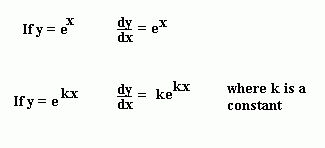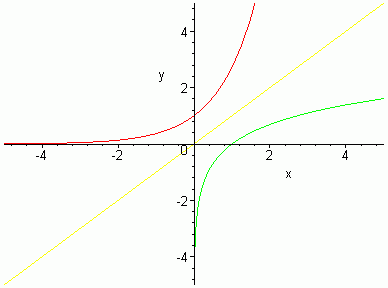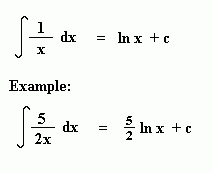Exponentials and Logarithms
The Exponential Function
The exponential function, written exp(x) or ex, is the function whose derivative is equal to its equation. In other words:

Because of this special property, the exponential function is very important in mathematics and crops up frequently.
Like most functions you are likely to come across, the exponential has an inverse function, which is logex, often written ln x (pronounced 'log x').
In the diagram, ex is the red line, lnx the green line and y = x is the yellow line. Notice that lnx and ex are reflections of one another in the line y = x .

The Natural Logarithm
ln x is also known as the natural logarithm. The derivative of ln x is 1/x.
It therefore follows that the integral of 1/x is ln x + c .

Solving Equations
If we are given equations involving exponentials or the natural logarithm, remember that you can take the exponential of both sides of the equation to get rid of the logarithm or take the natural logarithm of both sides to get rid of the exponential.
Example
Solve 0.5 = ex
Then ln(0.5) = ln(ex)
ln(0.5) = x
